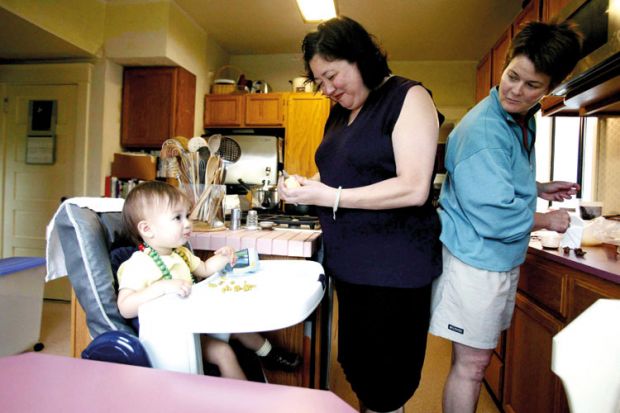In this study of extraordinary journeys to kinship, sociologist Joshua Gamson presents us with six first-person accounts (one of which is his own) of modern family creation, including surrogacy, adoption, single parenthood and multi-parenting. Qualitative studies of “the social” – interactions between individuals in their attempts to realise aspirations within structures of imposed “normality” – often have the quality of exposure, especially when the topic is morally highly sensitive, as with procreation and the family. Rich in dramatic tensions, private passions and public and political moral complexities, these “creation stories” of having children in unusual family contexts make the famous tale of descending from Lady Bracknell’s handbag pale in comparison. But Wilde’s and Gamson’s messages are at heart the same: a society that believes that moral respectability derives from “purity” of descent, whatever that may be seen to be, ultimately deserves to be exposed for its hypocrisy and injustice.
Since the birth of animal husbandry, we have known ways of supporting procreation outside the bounds of the “normal”, including kin or other surrogacy, forms of artificial insemination and secret adoption. What is modern about these families, gay and straight, is not their shared project of having children despite a variety of obstacles, but the new technologies available to facilitate that project: egg harvesting and implantation, sperm freezing and in vitro fertilisation; websites for the global exchange of eggs, sperm and babies for adoption; and the mobile phones, Skype, easy air travel, credit cards and sophisticated medical and legal services that facilitate transactions between individuals often living far apart. As Gamson frequently notes, these things are costly, and available only to a few. These few become not only potential exploiters, as is often noted in debates, but also important path-breakers. These families are also modern, however, in their collective desire to be open about what they are doing as donors, carriers and parents-to-be eager to share with the world, and their offspring themselves, the process of how the children came to be.
Sociologically, these “stories” throw up interesting contradictions: the inability of institutional bureaucracy, whether legal, welfare or religious, to accommodate those taking procreative matters in their own hands, literally and metaphorically, yet refusing to do it without some legal backing to confirm moral seriousness of intent as citizens and future parents. This proves difficult because law differs across individual US states regarding surrogacy or what counts as being married, and internationally regarding what counts as entitlement over orphaned babies. The book is rich in examples of minor victories over petty officialdom. There is also a contradiction, as Gamson notes, between the desire to proclaim difference, as gay, single, multi-parent or transgender families, and at the same time to look for respect and equal rights within a shared moral culture built on the need for a secure loving family environment.
The final contradiction relates back to the core concept of “creation stories”. In anthropology, such stories are seen to be vivid tales of fantasy bringing communities together in a shared heritage; here, however, the stories are factual tales about the origin of individuals. In this sense, Gamson’s engagingly presented research is unfinished, to be completed only when those individuals can look back and tell us how they lived with these true tales of their own creation.
E. Stina Lyon is professor emeritus of educational developments in sociology, London South Bank University.
Modern Families:Stories of Extraordinary Journeys to Kinship
By Joshua Gamson
New York University Press, 240pp, £18.99
ISBN 9781479842469
Published 10 September 2015




